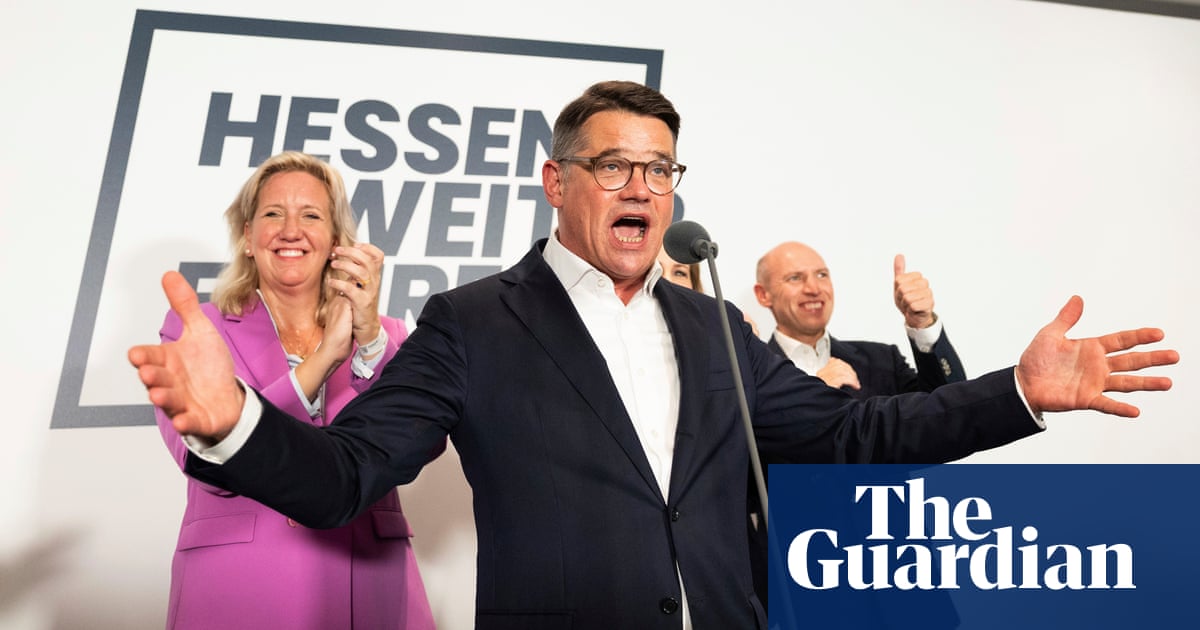Worries about the economy and migration pushed up share for far-right AfD in Hesse and Bavaria, while coalition parties did worse
German chancellor Olaf Scholz’s fractious centre-left coalition has received a sharp rebuke from voters in the key states of Bavaria and Hesse, with economic woes and immigration fears boosting the opposition conservatives and the far right.
At the elections on Sunday the far-right Alternative for Germany (AfD) party burst out of its post-industrial eastern strongholds to score its best ever result in a western state. Polls showed it on course to be the second largest party in Hesse, home to the financial capital Frankfurt.
All three parties in Scholz’s federal coalition – his Social Democrats, the Greens and the pro-business Free Democrats (FDP) – did worse than five years ago in the states, which together account for about a quarter of the German population.



Yeah, what we need to do is look from the angle of most people not from above. A lot of people suffer very real deficits of money. They don’t earn more, especially in the East and between Corona, the war in Ukraine and the general world economy everything is more expensive.
What they see is: we have less money, a lot of money gets to other things they don’t care about.
Far right populists promises to curb that money to these things they don’t care much about and indicate that the money of the suffering Germans will improve thusly.
Concrete problems, concrete solution propositions. And that’s just enough for a lot of people who are seeing the bottom of their wallets.